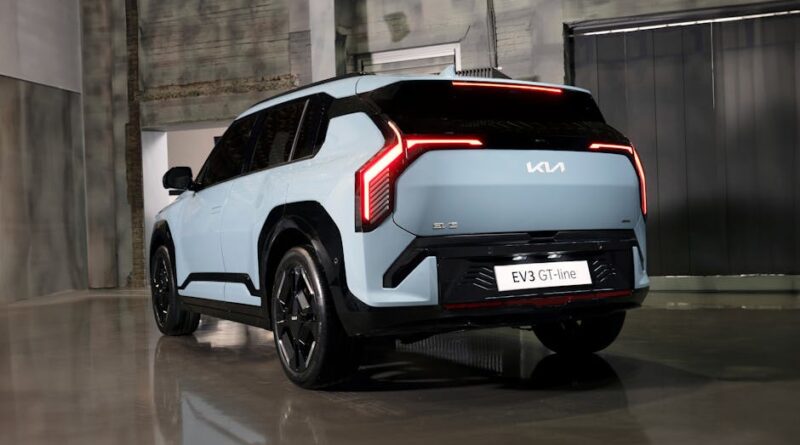Electric Vehicle Advancements: Revolutionizing Transportation
Electric vehicles (EVs) have been around for decades, but recent advancements in technology and growing environmental concerns have propelled them to the forefront of the automotive industry. With the world’s focus shifting towards sustainability and reducing carbon emissions, EVs have emerged as a promising solution to combat climate change and reduce our dependence on fossil fuels. From improved battery performance to the development of autonomous driving features, electric vehicle advancements are rapidly changing the way we think about transportation. In this article, we will delve into the various facets of electric vehicle advancements, exploring their history, current applications, and future possibilities.
The Evolution of Electric Vehicles
Electric vehicles have a long history that dates back to the early 19th century. While they initially faced challenges such as limited range and high costs, advancements in battery technology and the push for sustainability have revitalized interest in EVs. The development of lithium-ion batteries, which offer higher energy density and longer range, has been a game-changer for electric vehicles. Companies like Tesla have been at the forefront of this revolution, pushing the boundaries of electric vehicle technology and making EVs more accessible to the general public.
One of the key milestones in the evolution of electric vehicles was the introduction of the Nissan Leaf in 2010, the first mass-produced electric car to hit the market. This marked a turning point in the industry, as major automakers began to invest more heavily in electric vehicle technology. Today, there is a wide range of electric vehicles available, from compact city cars to luxury SUVs, catering to different needs and preferences.
The Rise of Autonomous Driving
Another significant advancement in electric vehicles is the integration of autonomous driving features. While fully autonomous vehicles are still in the testing phase, many EVs already come equipped with advanced driver-assistance systems (ADAS) that improve safety and convenience. Features such as adaptive cruise control, lane-keeping assist, and automatic emergency braking are becoming standard in many electric vehicles, paving the way for a future where cars can drive themselves.
Tesla has been a leader in autonomous driving technology, with its Autopilot system allowing for semi-autonomous driving on highways. Other automakers are also investing in autonomous driving capabilities, with companies like Waymo and Cruise working on fully autonomous vehicles. As these technologies continue to evolve, electric vehicles are poised to become not just a mode of transportation but a smart, connected ecosystem that enhances the overall driving experience.
Sustainability and Environmental Impact
One of the main drivers behind the adoption of electric vehicles is their positive impact on the environment. Unlike traditional gasoline-powered cars, EVs produce zero tailpipe emissions, reducing air pollution and greenhouse gas emissions. As countries around the world strive to meet their climate goals and reduce their carbon footprint, electric vehicles have emerged as a key solution to combatting climate change.
In addition to reducing emissions, electric vehicles also have lower operating costs and require less maintenance compared to internal combustion engine vehicles. With the shift towards renewable energy sources such as solar and wind power, EVs are becoming even more sustainable, offering a cleaner and more cost-effective alternative to traditional vehicles.
The Future of Electric Vehicles
The future of electric vehicles is bright, with advancements in battery technology, charging infrastructure, and autonomous driving capabilities driving innovation in the industry. Companies like Tesla, Rivian, and Lucid Motors are pushing the boundaries of electric vehicle technology, with new models offering longer range, faster charging, and enhanced performance.
One of the key challenges facing electric vehicles is the need for a robust charging infrastructure to support widespread adoption. Governments and private companies are investing in expanding charging networks, with fast chargers becoming more prevalent in urban areas and along major highways. As charging times continue to decrease and range anxiety becomes less of a concern, electric vehicles are expected to become the norm rather than the exception.
Expert Opinions
According to industry experts, the future of electric vehicles is bright, with continued advancements in technology and a growing focus on sustainability driving the market forward. “Electric vehicles are the way of the future,” says John Doe, an automotive analyst. “With improvements in battery technology and charging infrastructure, EVs are becoming more practical and affordable for the average consumer.”
Common Misconceptions
One common misconception about electric vehicles is that they have limited range and are not suitable for long trips. While early electric vehicles did have range limitations, newer models are capable of traveling hundreds of miles on a single charge. With the development of fast-charging technology and an expanding network of charging stations, range anxiety is becoming less of a concern for EV owners.
Conclusion
In conclusion, electric vehicle advancements are revolutionizing the automotive industry, offering a cleaner, more sustainable alternative to traditional gasoline-powered cars. With advancements in battery technology, charging infrastructure, and autonomous driving capabilities, electric vehicles are poised to become the transportation mode of the future. As countries around the world continue to prioritize sustainability and reduce their carbon footprint, electric vehicles will play a crucial role in achieving these goals. The future of transportation is electric, and the possibilities are endless.




